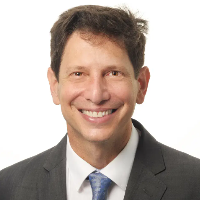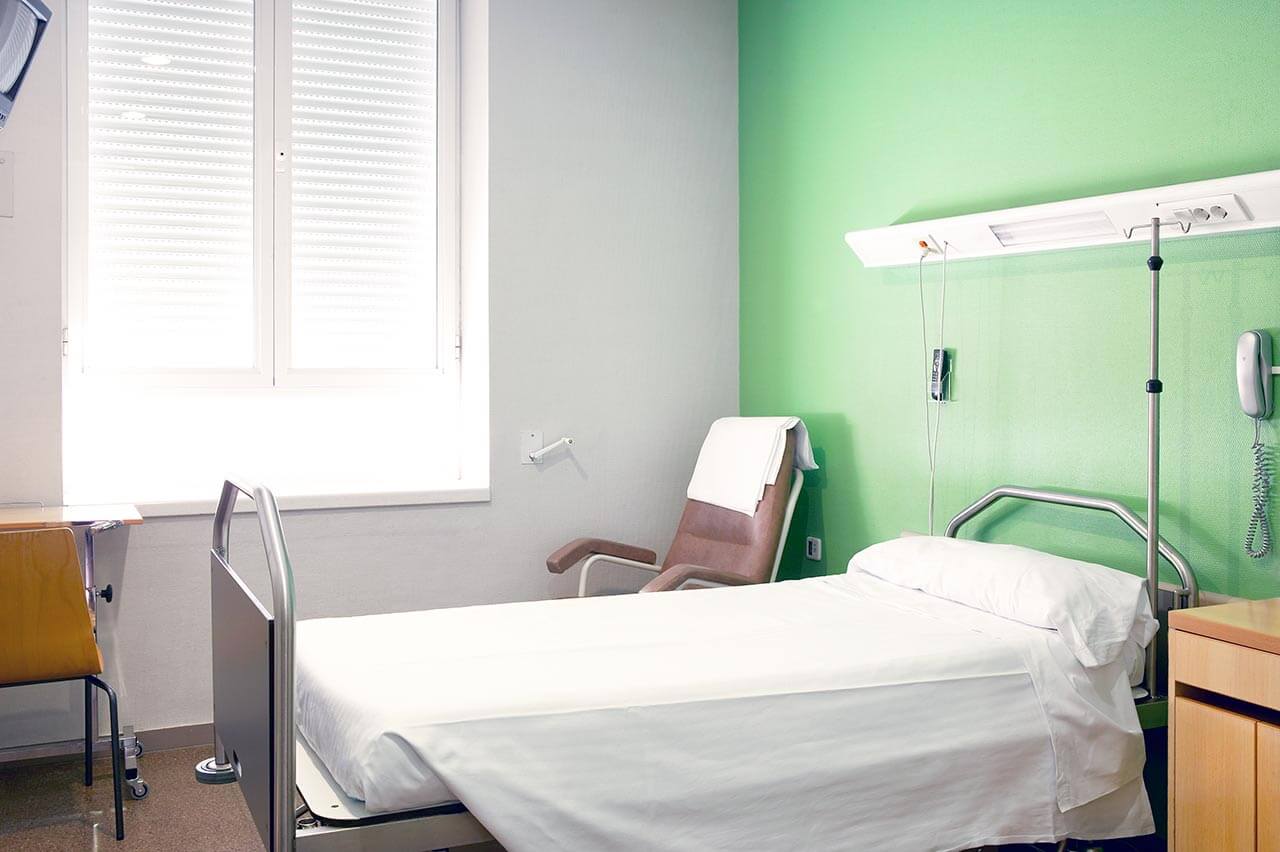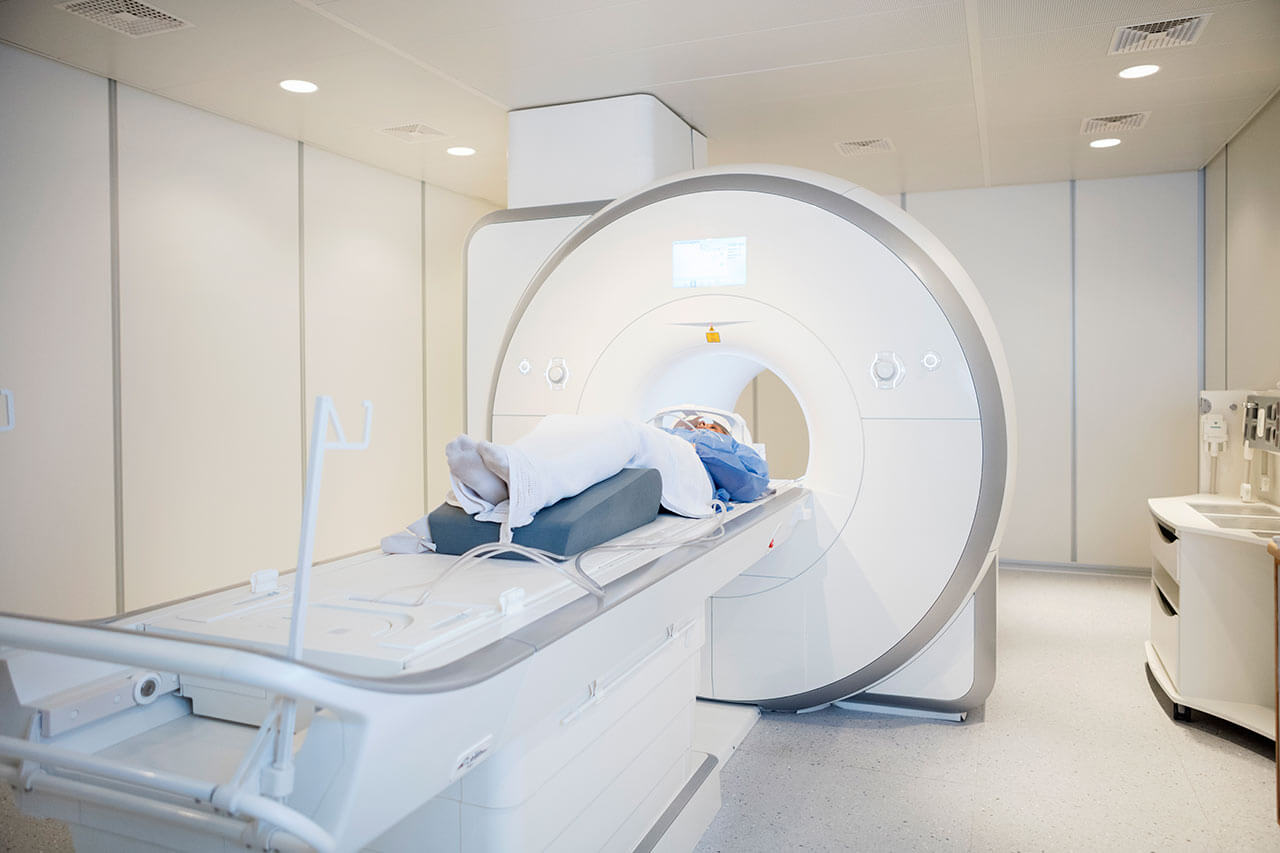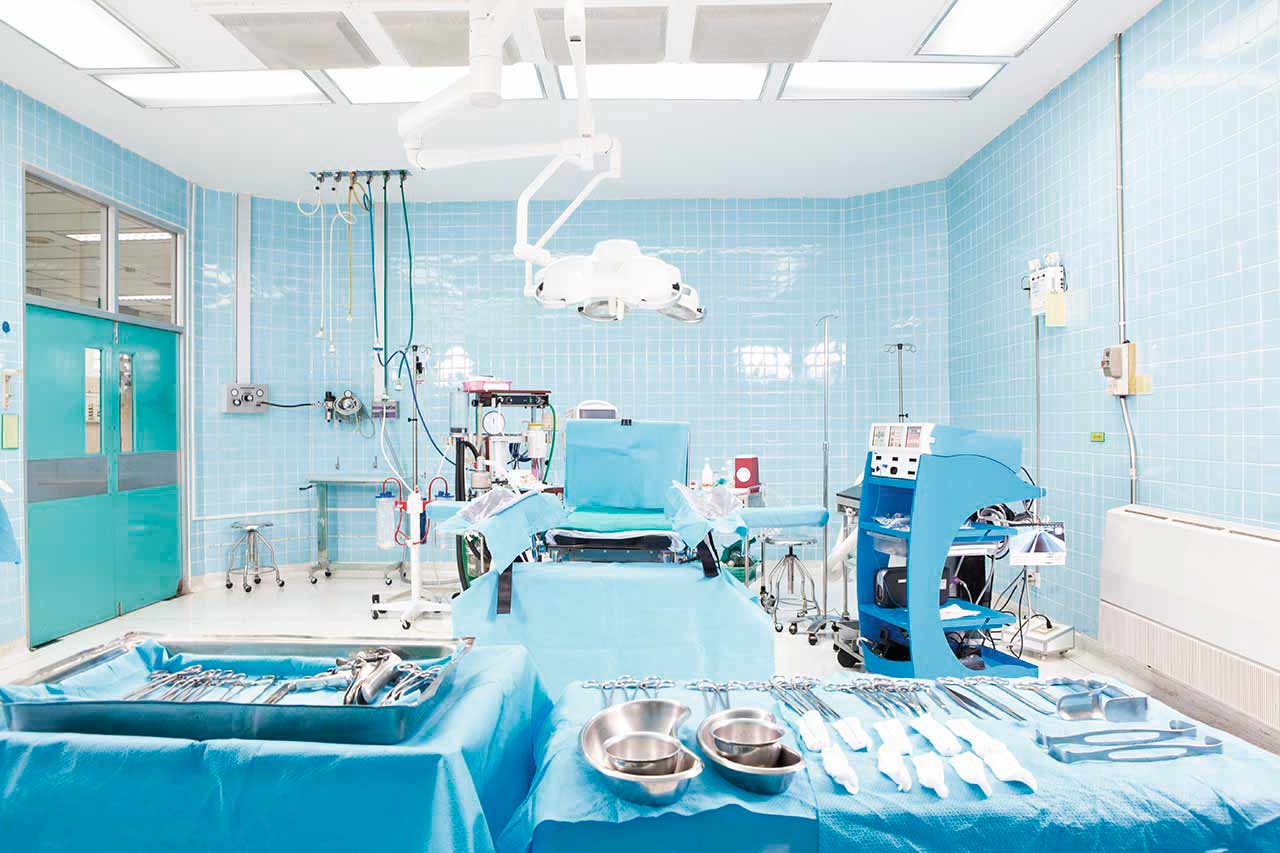
The program includes:
- Initial presentation in the clinic
- clinical history taking
- review of medical records
- physical examination
- urological examination
- laboratory tests:
- complete blood count
- general urine analysis
- biochemical analysis of blood
- inflammation indicators (CRP, ESR)
- indicators blood coagulation
- ultrasound pelvic
- preoperative care
- surgical correction of urethral channel
- symptomatic treatment
- control examinations
- the cost of essential medicines and materials
- nursing services
- full hospital accommodation
- explanation of future recommendations
Required documents
- Medical records
- Penis photo
Service
You may also book:
 BookingHealth Price from:
BookingHealth Price from:
About the department
According to the Focus magazine, the Department of Pediatric Surgery at the University Hospital of Ludwig Maximilian University of Munich ranks among the top German medical facilities in the area of its specialization!
The department provides the full range of diagnostics and surgical treatment of various diseases in newborns, young children, and adolescents. The medical facility has been conducting its successful clinical practice for over 175 years, and therefore it is rightfully proud of its long history and rich experience. The health of young patients is in the safe hands of a large team of doctors with many qualifications and impeccable professional skills. The priority focuses of the work of the department's surgeons include operations for congenital malformations, the consequences of injuries and burns, benign and malignant neoplasms, and diseases of the abdominal cavity, chest, and nervous system. The department annually performs more than 1,900 surgical procedures of varying degrees of complexity. All modern surgical techniques and advanced computerized medical equipment are available here, so that young patients receive the most effective and safe treatment. In addition, the department’s specialists provide children and their parents with professional psychological care. The department is headed by Prof. Dr. med. Oliver Muensterer.
Many young patients are admitted to the department with diseases of the abdominal organs, including those of the gastrointestinal tract. The team of pediatric surgeons successfully performs operations for congenital diaphragmatic hernia, atresia of the small and large intestine, anus, esophagus, and duodenum, gastroschisis, ileal perforation, necrotizing enterocolitis, intussusception, and other pathologies. The specialists always strive to perform surgery using low-traumatic techniques to reduce the risks to the child's health and accelerate the recovery process after the operation.
The department's common clinical cases include diseases and malformations of the nervous system such as hydrocephalus, craniosynostosis, meningomyelocele, encephalocele, plagiocephaly, traumatic brain injuries, etc. Hydrocephalus is a pathological condition marked by the accumulation of fluid in the ventricles of the brain. During an operation to treat an anomaly, surgeons place special shunts to drain excess fluid into the abdominal cavity. Doctors also perform surgical interventions to implant innovative self-adjusting gravitational shunts (since 2004). In some cases, it is possible to perform endoscopic operations to treat hydrocephalus. The repair of other nervous system malformations listed above is also performed using modern surgical techniques.
The department's surgical options are complemented by the treatment of diseases of the urinary system and reproductive system in boys. Doctors have special competence in surgery for duplex kidney and associated anomalies, bladder epispadias and exstrophy, congenital posterior urethral valves, megaureter, varicocele, vesicoureteral reflux, and other urologic diseases. Depending on the particular pathology, the department's surgeons perform minimally invasive, endoscopic, and open surgeries. The last treatment option is only resorted to in particularly complex clinical cases.
The department's main clinical activities are as follows:
- Emergency surgery for acute pathological conditions
- Surgical treatment of diseases of the abdominal organs in children, including those of the gastrointestinal tract
- Congenital diaphragmatic hernia
- Atresia of the small and large intestine, anus, duodenum, biliary tract and esophagus
- Gastroschisis
- Necrotizing enterocolitis
- Ileal perforation
- Intussusception
- Surgical treatment of malignant diseases in children (in collaboration with pediatric oncologists)
- Wilms' tumor
- Neuroblastoma
- Germ cell tumors
- Liver tumors
- Soft tissue sarcomas
- Surgical treatment of injuries in children
- Bone fractures (modern methods of osteosynthesis)
- Traumatic brain injuries
- Burns
- Surgical treatment of congenital and acquired diseases, and malformations of the genitourinary tract in children
- Duplex kidney
- Enuresis
- Phimosis
- Hypospadias
- Varicocele
- Vesicoureteral reflux
- Ureteral stenosis
- Megaureter
- Exstrophy-epispadias complex
- Vesicoureteral reflux
- Congenital posterior urethral valves
- Surgical treatment of diseases of the nervous system in children
- Neuroblastoma
- Hydrocephalus
- Craniosynostosis
- Meningomyelocele and encephalocele
- Plagiocephaly
- Traumatic brain injuries
- Surgical treatment of congenital chest deformities in children
- Pectus excavatum
- Pectus carinatum
- Plastic surgery in children
- Surgery for lymphangiomas, and venous, and arteriovenous malformations (in collaboration with the specialists in interventional radiology)
- Surgery for hemangiomas
- Surgery for hand and feet malformations: syndactyly, hexadactyly and doubling of the big toe
- Surgery for acute hand injuries
- Surgery for pigmented nevi
- Other medical services
Curriculum vitae
Higher Education and Postgraduate Training
- 11.2006 Habilitation, Ludwig Maximilian University of Munich.
- 05.1996 Admission to medical practice, Bavarian State Ministry of Health and Care, Germany.
- 03.1995 Thesis defense, Ludwig Maximilian University of Munich.
- 12.1994 State Exam, Ludwig Maximilian University of Munich.
- 07.1994 Admission to medical practice, University of Alicante, Spain.
Board Certification and Additional Qualifications
- 12.2007 Part 1 and 10.2008 Part 2 board certification in Pediatric Surgery, European Board of Pediatric Surgery.
- 10.2005 Board certification in Pediatric Surgery, Bavarian State Medical Association.
- 03.2004 Additional qualification in Sports Medicine, Bavarian State Medical Association.
- 10.1999 Board certification in Pediatrics, American Board of Pediatrics (recertified 09.2008 and 10.2017).
- 05.1995 Board certification in Internal Medicine, Spain.
Certificates
- 02.2013 da Vinci Robotic Surgery Certificate, Intuitive daVinci Training Center, Hackensack, NJ, USA.
- 04.2009 Advanced Trauma Life Support Instructor Certificate.
- 07.2008 Advanced Trauma Life Support Certificate.
- 04.2011 (again 04.2013) Pediatric Advanced Life Support Certificate.
- 02.2011 (again 01.2013) Basic Life Support Certificate.
- 01.2002 Radiation Protection Certificate (Emergency Diagnosis), Bavarian State Medical Association.
- 03.07.1996 ECFMG Certificate.
Clinical Activities
- Since 2020 Head Physician of the Department of Pediatric Surgery, University Hospital of Ludwig Maximilian University of Munich.
- 08.2005 - 02.2006 Work in the Department of Pediatric Surgery, University Hospital of Ludwig Maximilian University of Munich.
- 07.2004 - 07.2005 Pediatric Surgery Fellowship, Department of Pediatric Surgery, Children's Hospital of Alabama, University of Alabama, Birmingham, Alabama, USA.
- 08.1999 - 10.2000 and 06.2001 - 06.2004 Work in the Department of Pediatric Surgery, University Hospital of Ludwig Maximilian University of Munich.
- 11.2000 - 05.2001 Work in the Department of Surgery (focus on General Surgery), University Hospital of Ludwig Maximilian University of Munich.
- 06.1996 - 06.1999 Working in the Department of Pediatrics, Duke University Medical Center, Durham, North Carolina, USA.
- 07.1995 - 05.1996 Worked in the Department of Surgery, Washington Hospital Center, Washington, DC.
- 02.1995 - 05.1995 Internship, Department of Radiology, University Hospital of Ludwig Maximilian University of Munich.
Positions
- 05.2014 - 09.2014 Pediatric Surgeon and Associate Professor in Surgery and Pediatrics, Head of the Pediatric Simulation Program, Department of Surgery, Children's Hospital at Montefiore (CHAM), Albert Einstein College of Medicine.
- 06.2013 - 03.2014 Pediatric Surgeon, Maria Fareri Children's Hospital, Westchester Medical Center, New York Medical College.
- 10.2013 - 03.2014 Pediatric Surgeon, Phelps Memorial Hospital Center, Sleepy Hollow, New York.
- 10.2013 - 03.2014 Pediatric Surgeon, Northern Westchester Hospital, Mount Kisco, New York.
- 01.2011 - 05.2013 Associate Professor of the Department of Pediatric Surgery and Head of the Department of Pediatric Endosurgery; Director, Skills Acquisition and Innovation Laboratory (SAIL), Department of Surgery, Section of Pediatric Surgery, Weill Cornell Medical College, New York.
- 03.2011 - 05.2013 Associate Professor in Surgery, Head of the Department of Minimally Invasive Surgery, Columbia University College of Physicians and Surgeons, Morgan Stanley Children's Hospital, New York.
- 12.2011 - 09.2014 Consultant and Surgeon, Department of Surgery, Section of Pediatric Surgery, Memorial Sloan Kettering Cancer Center, New York.
- 12.2011 - 05.2013 Pediatric Surgeon, Lincoln Medical and Mental Health Center, New York.
- 05.2011 - 05.2013 Pediatric Surgeon, Brooklyn Hospital Center, New York.
- 05.2008 - 01.2011 Associate Professor in Pediatric Surgery and Head of the Department of Traumatology and Burn Management, University of Alabama at Birmingham, Alabama Children's Hospital.
- 03.2006 - 03.2008 Pediatric Surgeon, Senior Physician, Department of Pediatric Surgery, University Hospital Leipzig.
Research Interests
- Traction procedure for esophageal atresia.
- Telemedicine in pediatric surgery.
- Multiphoton microscopy for Hirschsprung's disease and tumors in children.
- Workflow analysis and optimization of endosurgical interventions, innovative approaches in pediatric endosurgery: single-incision endosurgery, robot-assisted surgery, and endoscopy.
- Training models and training in surgical modeling.
- Prenatal therapy for diaphragmatic hernia.
- Treatment of childhood injuries, epidemiology of childhood injuries, medical care for polytrauma.
- History of pediatric surgery and pediatric medicine.
Prizes, Awards and Distinctions
- 29.02.2016 Internal university funding of the startup "Analysis of the mutagenicity of the near-infrared radiation of a pulsed titanium-sapphire laser of a multiphoton microscope (MPM)".
- 15.02.2016 Funding of the MAICUM project "Robotic Surgery in University Medicine (RaCUM)".
- 2014 Harold Ellis Prize for the Best Article in the International Journal of Surgery.
- 09.2014 Funding of the initiative of the German Organization of Scientists to fund leading medical researchers from abroad, Else Kröner Fresenius Foundation.
- 30.08.2013 Top Gun Award from the Society for Laparoendoscopic Surgeons, Annual Meeting of SLS' Minimally Invasive Surgery Week 2013 and Endo Expo, Reston, Virginia, USA.
- 08.2011 Funding of the study "Overview of Single-Incision Pediatric Endosurgery".
- 2005 Winner of the IPOKRaTES Young Investigator Award, presentation at the "New Frontiers in Neonatology" event.
- 01.1999 Young Investigators Research Grant, Infant Feeding Study – Reasons for Choosing Breastfeeding or Artificial Feeding.
Memberships in Professional Societies
- Since 01.2017 Associate Member of the German Society for Burn Treatment (DGV).
- Since 12.2015 Member of the German Society for Perinatal Medicine (DGPM).
- Since 01.2014 Senior Member of the Association for Academic Surgery (AAS).
- Since 10.2014 Member of the American College of Surgeons (ACS).
- Since 05.2010 Member of the American Pediatric Surgery Association (APSA).
- Since 10.2005 Member of the Society of American Gastrointestinal and Endoscopic Surgeons (SAGES).
- Since 09.2005 Member of the International Pediatric Endosurgery Group (IPEG).
- Since 09.2003 Member of the German Society of Surgery (DGC).
- Since 05.2003 Member of the European Pediatric Surgeons' Association (EUPSA).
- Since 09.2000 Member of the German Society for Pediatric Surgery (DGKC).
- Since 05.1998 Member of the Academic Pediatric Association (APA).
- Since 09.1996 Member of the American Academy of Pediatrics (AAP).
Photo of the doctor: (c) LMU Klinikum
About hospital
According to the Focus magazine, the University Hospital of Ludwig Maximilian University of Munich is regularly ranked among the best medical institutions in Germany!
The hospital is the largest multidisciplinary medical facility, as well as a leading research and training center in Germany and Europe. The hospital is proud of its bicentenary history and tirelessly confirms its primacy at the national and international levels. The outstanding quality of medical care is complemented by highly productive research activities, thanks to which many effective diagnostic and therapeutic methods, saving people’s lives, have been presented in medical practice.
The medical facility includes two main buildings, Grosshadern and Innenstadt. The hospital has 29 specialized departments, 53 interdisciplinary centers, 11 institutes, and many sections. More than 500,000 patients are treated here every year, which indicates the hospital's excellent reputation. A large and highly professional medical team, consisting of 1,800 doctors and 3,300 nursing staff, works for the benefit of patients. The hospital has 2,000 beds to accommodate patients.
The hospital's infrastructure deserves special attention: advanced diagnostic equipment that allows doctors to detect the slightest pathological changes in the human body, the latest operating rooms with highly efficient monitoring systems, robot-assisted surgical systems that facilitate sparing operations, and proper postoperative care.
Excellent technical resources and highly professional medical staff are undoubtedly the hospital's pride, but the medical facility also pays attention to the patient's comfort and to a humane attitude toward their life situation. When providing the necessary medical care, doctors and nursing staff always show a friendly attitude, inform patients in detail about the upcoming diagnostic and therapeutic procedures, gladly answer all questions of interest to patients, and provide moral support during the therapeutic process.
The hospital has many prestigious quality certificates, including a DIN EN ISO 9001 certificate, an IQM certificate, an endoCert certificate, certificates from the German Cancer Society (DKG) for treating various types of cancer, the German Cardiac Society (DGK), the German Society for Orthopedics and Trauma Surgery (DGOU), etc. Thus, patients can count on the best possible treatment outcome due to the use of the most effective and, at the same time, sparing therapeutic techniques.
Photo: (с) depositphotos
Accommodation in hospital
Patients rooms
The patients of the University Hospital of Ludwig Maximilian University of Munich live in comfortable, spacious, single and double patient rooms with a modern design. Each room is equipped with an ensuite bathroom with a shower and toilet. The furnishing of a standard patient room includes a comfortable bed, the position of which can be adjusted using the remote control, a locker for storing personal belongings, a TV, and a telephone. Also, if desired, you can connect to the Internet. In addition, patients can opt for enhanced-comfort rooms, with a safe, a fridge, and upholstered furniture.
The hospital has an excellent infrastructure. The medical facility’s area houses a bank, ATMs, a hairdresser, shops with a wide range of food, drinks, newspapers, magazines, and personal hygiene items, play areas for children, and a beautiful garden for walking, etc.
Meals and Menus
The patient and his accompanying person are offered a daily choice of three menus, including a vegetarian one. If you are on a specific diet for any reason, you will be offered an individual menu. Please inform the medical staff about your dietary preferences prior to the treatment.
Further details
Standard rooms include:
Religion
Religious services are available upon request.
Accompanying person
Your accompanying person may stay with you in your room or at a hotel of your choice during the fixed program.
Hotel
You may stay at a hotel of your choice during an outpatient program. Our managers will help you to choose the best option.
The hospital offers a full range of laboratory tests (general, hormonal, tests for infections, antibodies, tumor markers, etc.), genetic tests, various modifications of ultrasound scans, CT scans, MRI and PET/CT, angiography, myelography, biopsies, and other examinations. Treatment with medications, endoscopic and robotic operations, and stereotaxic interventions are carried out here, modern types of radiation therapy are also used. The hospital offers patients all the necessary therapeutic techniques.
- Allogeneic bone marrow transplantation
- Microsurgical transplantation of head and neck tissues
- Microsurgical resection of brain tumors with intraoperative fluorescence
- Minimally invasive treatment of spine pathologies
- Joint replacement with postoperative rehabilitation (fast track program)
Patients with benign and malignant neoplasms of various localizations, pathologies of arteries and veins, herniated discs, osteoporosis, congenital and acquired pathologies of the musculoskeletal system, benign and malignant pathologies of the mammary gland, and other pathologies.
Which specialties of the University Hospital of Ludwig Maximilian University of Munich are the best?
- Interventional and diagnostic neuroradiology
- Vascular surgery
- Cardiac surgery
- Mammalogy
- Gastroenterology and hepatology
Over 1,700 highly qualified doctors work at the hospital.





